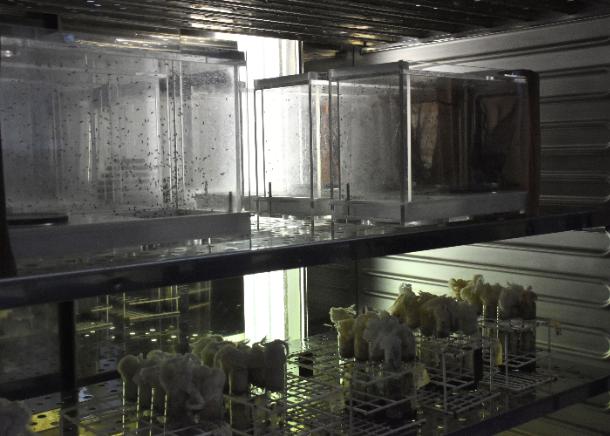Summary:
Group living offers the possibility for animals to acquire knowledge or skills from observing others (social learning). This helps them to adjust to complex and changing environments in different functional domains (e.g. finding food, choosing mates, choosing where to breed), without paying the costs associated with individual learning (i.e. time consuming, dangerous and quickly outdated). Social learning is, therefore, expected to have an impact on the Darwinian fitness of the animal and the social environment to be a major selective force driving the evolution of social cognition and brain size. This is the social brain hypothesis that although originally proposed for primates, prompted subsequent cognitive work across many vertebrate and invertebrate taxa. However, larger brains do not always correlate with larger group sizes - a proxy for social environmental complexity. Moreover, complex social behaviour and cognition have been found in small-brained animals such as bees, fruit flies, ants and fish, questioning whether there is a need of big brains for complex abilities. These findings have highlighted the need for an alternative approach to the social brain hypothesis, that focus on the neural circuits underlying social learning, rather than on brain sizes. At this level, the relevant question, which has raised recent debate, is to what extent are social cognitive abilities domain specific or general, i.e. does social learning relies on different or the same neural adaptations as individual learning? Here, we aim at answering to this question with Drosophila melanogaster, given the powerful genetic and neuronal tools available for this species, as well as its well characterized social behaviour. Though fruit flies are not eusocial insects, like bees and ants, with highly developed cooperative behaviours, they are capable of social learning in different functional domains, such as mating, foraging and egg laying.
Funding Institution:
Science and Technology Foundation (FCT - PTDC/BIA-COM/31887/2017).



